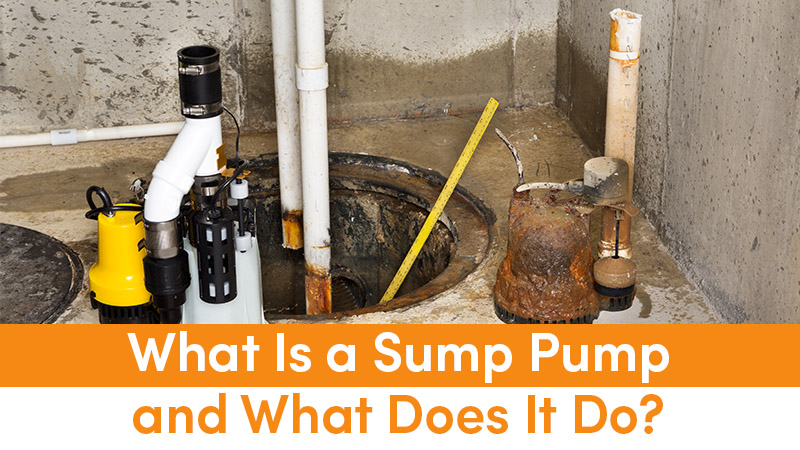What Is a Sump Pump and What Does It Do?

Heavy rains in the spring and summer can lead to flooding in the basement. Typically, it happens when the ground has been saturated with rain, and the falling water has nowhere to go. Sometimes high groundwater levels are the culprit. Regardless of the reason, water pouring into your basement or seeping through the floor or foundation can wreak havoc with your home. Installing a sump pump in the lowest area of your basement or crawl space can prevent issues with damage from rising water.
What is a sump pump?
A sump pump is a pump designed to detect rising water and automatically pump it out of your basement and away from your home through a discharge line. Most sump pumps are submersible, but some are pedestal pumps. The motor of a pedestal pump sits above the water and is connected to the pump via a hose. Pedestal pumps generally have a longer life expectancy and are easier to access for servicing, but they are also louder and take up more space in your basement. Either type can save your home from water damage or mold infestation.
Where do you install a sump pump?
A sump is typically installed in the lowest point in your basement or crawl space. A hole, called a basin or sump pit, is typically dug in the soil, and the sump pump is placed in the basin. As water begins to fill the basin, it is detected by sensors on the sump pump. This activates the sump pump, and it begins to pump excess water out of the basement.

Where does the excess water go?
A discharge hose connected to the sump pump channels the water outside and away from your home. It may be vented into a dry well, pond, creek, or a neighborhood drain. It is important that the water is not discharged in an area where it can re-enter your basement.
Do all homeowners need sump pumps?
If your basement is prone to flooding, a sump pump is vital. Flooding can occur in the spring or any time of year when you experience heavy rains or flood conditions, such as over-flowing streams. Sometimes a basement is prone to flooding because the basement is lower than the level of groundwater in the area. If your home is perched atop a hill and never has issues with flooding, you may not need a sump pump, but most homes experience flooding at some time. Installing a sump pump can save you aggravation and keep your home safe from the damage excess water can cause.
If you have issues with your sump pump or need advice on whether you should install one, contact Amanda Plumbing Sewer & Drain today. Our professionals are ready to meet all your plumbing needs.